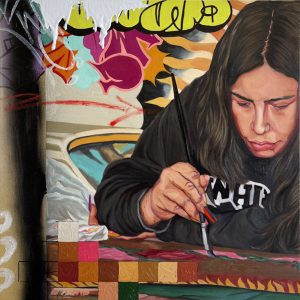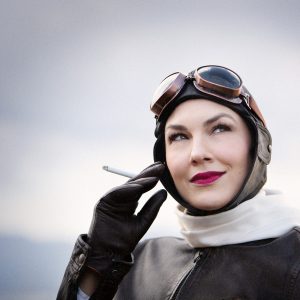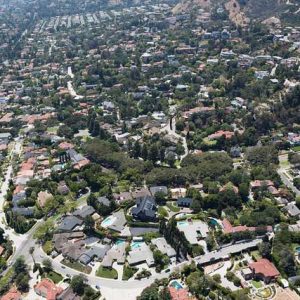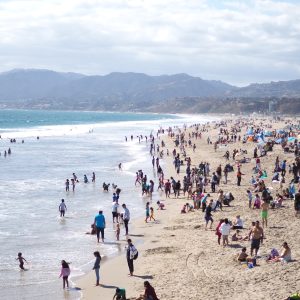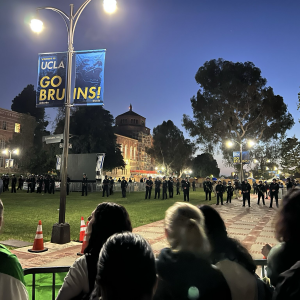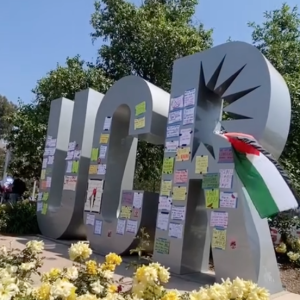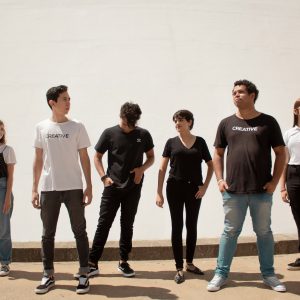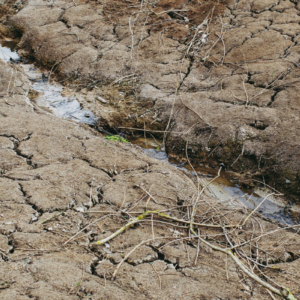 View Winners →
View Winners → Sequoyah School Welcomes Its First 9th Graders

Established in Pasadena in 1958 by local college professors, ministers, scientists, teachers, doctors, and civil servants, Sequoyah School is a place where children can find joy in learning and make a difference in the world. – Courtesy Photo
By May S. Ruiz
In January this year, the Harvard Graduate School of Education released a seminal document titled “Turning the Tide: Inspiring Concern for Others and the Common Good through College Admissions,” which has the potential to forever alter the college admissions landscape.
The result of a joint effort among the nation’s most respected colleges and universities, this two-year campaign hopes to promote ethical engagement among students, reduce excessive achievement pressure, and level the playing field for economically disadvantaged students. If its noble mission were to actually come to pass, Sequoyah School, which will be welcoming its first high-schoolers this fall, would be at the forefront of this sea change.
Established in Pasadena in 1958 by local college professors, ministers, scientists, teachers, doctors, and civil servants, Sequoyah School is a place where children can find joy in learning and make a difference in the world. Its founders’ mission is to provide education that challenges the mind, nurtures the heart and celebrates human dignity. The school values racial and socio-economic diversity in its enrollment, and 30 to 40 percent of its students pay below full tuition. Over half a century later, it hopes to extend this same ethic from the K-8 grades into high school.
Josh Brody, Sequoyah’s school director, welcomes the timely conversation sweeping the nation’s institutions of higher learning that emphasizes concern for others over building shiny resumes for students aspiring to gain admission to university. He says, “Colleges want to see students who have demonstrated work over time on a particular area that are of service to others. For a while, only the privileged few can afford to do novel things that look good on a transcript.”
“As a progressive school, Sequoyah starts with the students’ experience and understanding how they are interacting with the curriculum, what’s motivating them, and what’s challenging them, but also making sure they’re thinking of their life outside school. It isn’t just school for school’s sake; it should be about preparing them to become responsible and caring citizens of the community.” Brody expounds.
“I feel, in a wonderful way, more schools are embracing progressive ideals which are being recognized as good pedagogy. Doing it in a very deep way is challenging for high schools where transcripts, GPAs, and standardized testing results have been used as assessment methods. While these are measurements of learning, they are also imperfect measurements in the face of grade inflation and resume-padding,” he says further.
Brody elaborates, “Our high school students will develop initiative and self-direction through college preparatory coursework and field studies emphasizing global perspectives and cultural competency. Independent study and collaborative effort will culminate in a junior-year social impact project and senior-year internship.”
Sequoyah’s first high school director, Marc Alongi, explains how their program lends itself to a progressive approach, “We use performance tasks as a way to assess student learning. Each one has a project with a real purpose. If you’re in conceptual physics and you’re thinking about energy and mechanics, you’ll actually be building something that uses mathematics and all the equations that underlie whatever principle you used to come up with that object. It’s like what goes on in medical school where you demonstrate competency, not just taking an exam.”
“In K-8, students don’t get grades. In high school, we’ll have grades but we’ll continue to value goals that are process-oriented. We’ll include specific objectives relating to collaboration, or communication, or inquiry, as well as content standards. Students have seven modules per year that are five weeks long; they take three 85-minutes courses a day so they can be more focused, plus an elective and a social innovation program. At the end of each mod, they’ll get a report that scores their performance according to their mastery goals for each of the subject areas. What’s different also, is that we have interdisciplinary work within the curriculum. For example, students will be taking a Humanities course that integrates history and English, and some of the big themes and ideas could connect very nicely to the conceptual physics class or to the mathematics program,” Alongi explains.
“We have adopted a framework for Great Challenges which is a set of goals for making the world a better place.” Alongi illustrates Sequoyah’s program, “Let’s look at energy – where we get it, and how we produce it. The implication is that it contributes to global warming. The challenge then is to change that and mitigate its effects on CO2 emissions. We can embed that in our physics curriculum. At the same time there might be a group in the social innovation program who are out in the community talking about how we use energy in L.A., what innovations are taking place to transform technology or consumer behavior, etc. So we have it from both angles: real world investigating on the community project perspective and studying the subject.”
With progressive education in core courses in English, math, history/social science, laboratory science, foreign language, visual and performing arts, and college-prep elective, Sequoyah will meet the A-G requirements of the University of California. It will also offer athletics and participate in the California Interscholastic Federation (CIF) as it fields teams in basketball, cross country, fencing, mountain biking, soccer, swimming and diving, tennis, and volleyball.
More importantly, though, its four-year Social Innovation Program (SIP) will develop students’ empathy and desire to be thoughtful, effective collaborators and change-makers.
Sequoyah’s educational philosophy is attracting the attention of accomplished proponents as evidenced by the caliber of teachers who have applied, and agreed to come on board. They come from the best colleges and universities, including MIT and Caltech, Columbia and Stanford. These educators have held jobs and been involved in careers that span the gamut – a journalist for a television network, counseling psychologist at a Quaker School or an artist in residence in New York, fair trade business entrepreneur, scientist and co-founder of a biotech company in Los Angeles. They have varied interests ranging from organic gardening and amateur beekeeping to cooking Greek food or at Lucques.

Jenny Hazell, Sequoyah teacher, reads to students during this past year’s Banned Books Event. – Courtesy Photo
Brody himself is an alumnus of Pasadena’s Polytechnic School. He graduated magna cum laude from the University of Colorado and later received his master’s in Education from Harvard. He has been involved in education and human rights in the U.S. and internationally. As an Echoing Green Fellow from 1999 to 2002, he started a project for education reforms in very remote high mountain areas of Nepal. Its objective was to make education relevant to languages, livelihood, and culture of people living in these remote areas where the nearest road is an eight-day walk.
Alongi, a New Mexico native, completed his bachelor’s in religious studies and his master’s in teaching at Brown University, and holds a doctorate in educational psychology from USC. He is also co-founder and advisor to Ashram Paryavaran Vidyalaya (APV), a model school and teacher training center dedicated to project-based learning, mindfulness, and music, in Uttarakhand, India.
This diverse group of civic-minded educators come together at Sequoyah School to use their experience and to impart their knowledge to the first class of high-schoolers who share their passion for community service in scholarship. And if Brody were correct in thinking this philosophy is being embraced by more schools, then through their combined work, future generations of Americans may yet get a chance at a better world.











